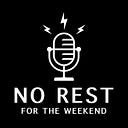SMALL TOWN UNIVERSE at Brooklyn Film Festival 2024
by Maribeth Thueson
Most people these days are so reliant on — not to say addicted to — their cell phones that you’d practically have to surgically remove their phones from their hands to pry them away. Imagine, then, living in a town where the use of cell phones is illegal and watchmen drive through the streets in trucks outfitted with special equipment to detect wireless signals.
It sounds like a dystopian tale of a restrictive fascistic society, but in reality it’s just the small town of Green Bank, West Virginia, the home of the Green Bank Observatory, which operates seven radio telescopes. The telescopes enable scientists to make discoveries about such phenomena as black holes and the beginning of the universe, and may someday provide evidence of extraterrestrial life. The U.S. government created the National Radio Quiet Zone, a 13,000 square mile area, around Green Bank in 1958 to shield the telescopes from interference. At the time, only radio and televisions broadcast signals were a problem, but now all wireless, wifi, or other transmitters are also banned.
The documentary Small Town Universe explores what it’s like to live near Green Bank for three sets of people: the scientists who work at the observatory, the residents of the town, and the people who have moved to the town because it’s a device-free zone.
The observatory allows astronomers to do cutting-edge science, while providing educational opportunities to students and contributing to the local economy in the form of jobs — everything from machinists to janitors. The scientists find themselves becoming part of the community, and like that their kids are growing up in an old-fashioned way. “My kids have access to all of the stuff of their generation,” one of them says. “They have computers at home. They just don’t have them in their pockets.” She takes a walk in the woods with her two boys, then proves the advantages of living in Green Bank by returning home and letting them go off to explore on their own.
Meanwhile, the residents, some of whose families have been there for generations, are proud that they live in a place that is contributing to our knowledge of the universe. They’re just as happy that the observatory’s employment opportunities allow them to stay on their farms, which would otherwise not be economically viable.
The third group are people who say they have electromagnetic hypersensitivity syndrome and suffer from a variety of physical symptoms caused by exposure to electromagnetic fields. They come to the quiet zone as refugees to find relief, often moving to Green Bank permanently.
Everyone’s lifestyles are put at risk when the National Science Foundation proposes cuts to the observatory’s budget, including as an option perhaps closing it down altogether. The groups band together to fight the cuts, although even the financial reprieve cannot stop the incursion of wireless signals. There is a growing issue with the wifi signals coming from upgraded broadband cable and fiber-optic equipment in people’s homes, and it seems impossible that the quiet zone will stay quiet forever.
Small Town Universe is a fascinating look at what a phone-free lifestyle is like, and how it can foster community and connection. It might make you want to establish your own phone-free zone, or at least a few phone-free hours. The film won the Audience Award for Documentary Feature at the 2024 Brooklyn Film Festival.
Originally published at http://behindtherabbitproductions.wordpress.com on June 11, 2024.
